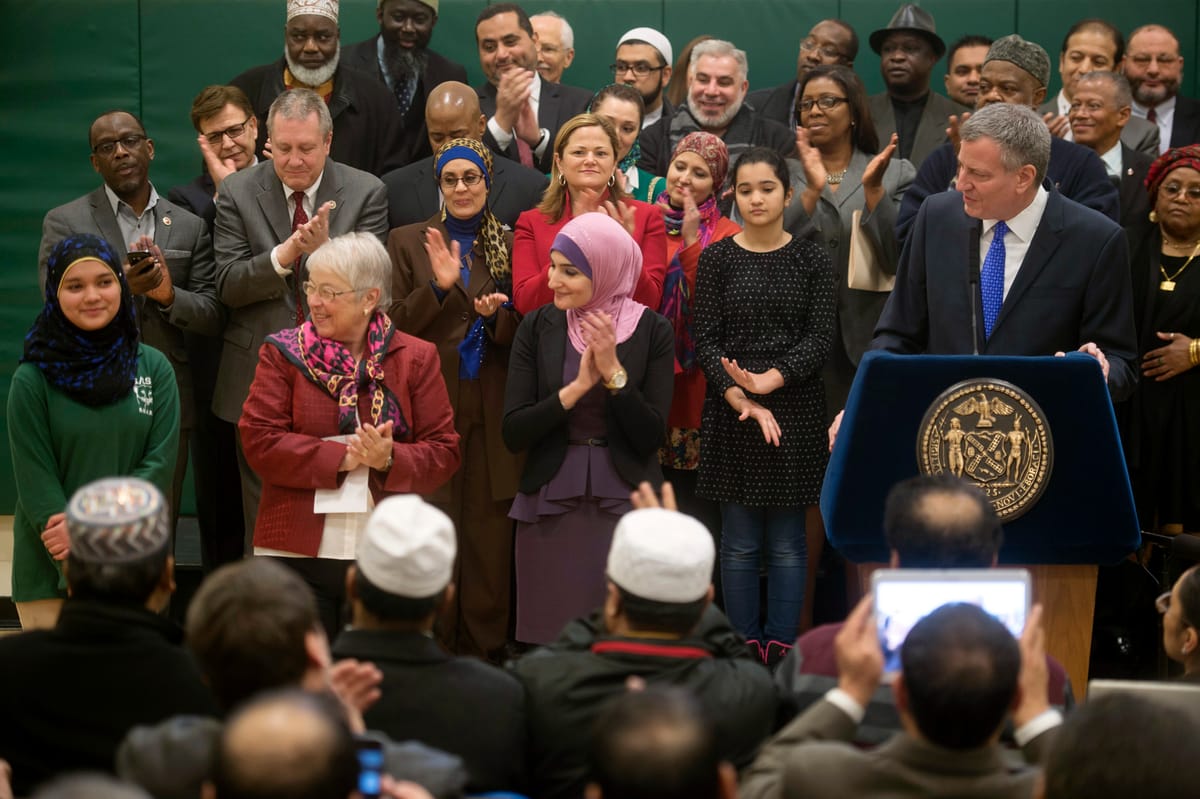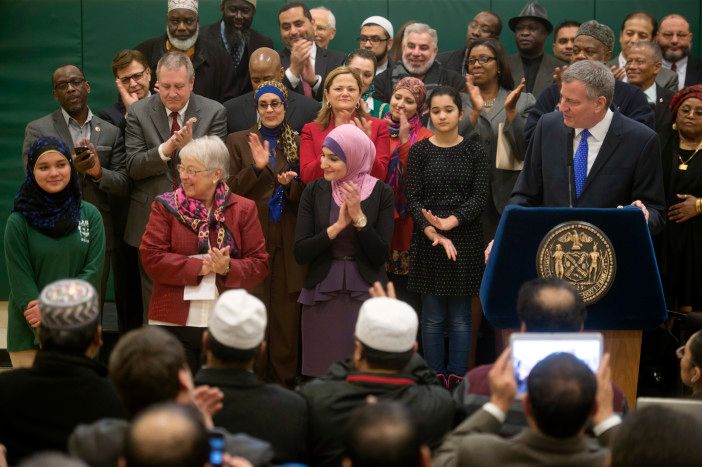City Public School Calendars Will Now Recognize Two Muslim Holidays


As of the 2015-2016 school year, New York City public school students will have two new official holidays, one on September 24 for Eid al-Adha and one during the summer for Eid al-Fitr, in celebration of two of the major holidays celebrated by Muslims around the world — including the city’s growing Muslim American population.
The move — which manages to NOT eliminate any instruction days from the school calendar — comes as Muslim American advocates have increasingly pushed for official recognition of these holy days, and as elected officials have increasingly joined them in support for the cause.
Mayor Bill de Blasio described the news as the fulfillment of the city’s “pledge to families that we would change our school calendar to reflect the strength and diversity of our city” and that now “hundreds of thousands of Muslim families will no longer have to choose between honoring the most sacred days on their calendar or attending school.”
Schools Chancellor Carmen Fariña touted the change as an opportunity for “a teachable moment in the classroom for our students to learn about religious tolerance and the societal contributions of various cultures.”
De Blasio and Fariña made the announcement here in Brooklyn, at P.S./I.S. 30 in Bay Ridge, where 36 percent of the students were absent when Eid al-Adha last fell on an instructional day.
According to the DOE, they join school districts in states such as Vermont, Massachusetts, and New Jersey that also close its public schools in observance of Muslim holidays.
The new days off don’t include Lunar New Year, which has also enjoyed ongoing advocacy on its behalf by Asian American New Yorkers, including Governor Andrew Cuomo, who recently signed into law the ability for school districts in New York to do so if they so choose. New York City, however, has simply maintained that:
Under the Chancellor’s Regulations, students are allowed an excused absence from school for their religious and cultural observances. However, that excused absence can still come at the expense of missing critical classroom instruction, exams or projects.
The DOE will continue to closely monitor spikes in absenteeism over holidays as it works toward its commitment to serve the needs of all students to ensure equality and respect for families and children of all faiths.
Public Advocate Letitia James and Brooklyn Borough President Eric Adams also expressed their support, with James calling it “a clear message. . . that [Muslim New Yorkers] are accepted as part of our society and that their faith and traditions are respected by a city that counts on them as responsible citizens,” and Adams praising it as recognizing Brooklyn’s “proud and growing Muslim community, enriching neighborhoods from Bay Ridge to Boerum Hill.”
Brooklyn parent and Muslim American activist Linda Sarsour also stated that “as a parent of three current New York City public school students, I am so proud of my city today [because] this is what New York City is all about – recognition, inclusion and respect.” Sarsour is a member of the Coalition for Muslim School Holidays and Executive Director of the Arab American Association of New York.



